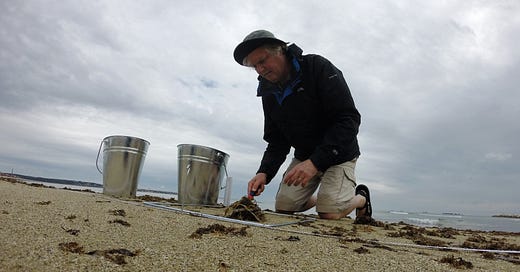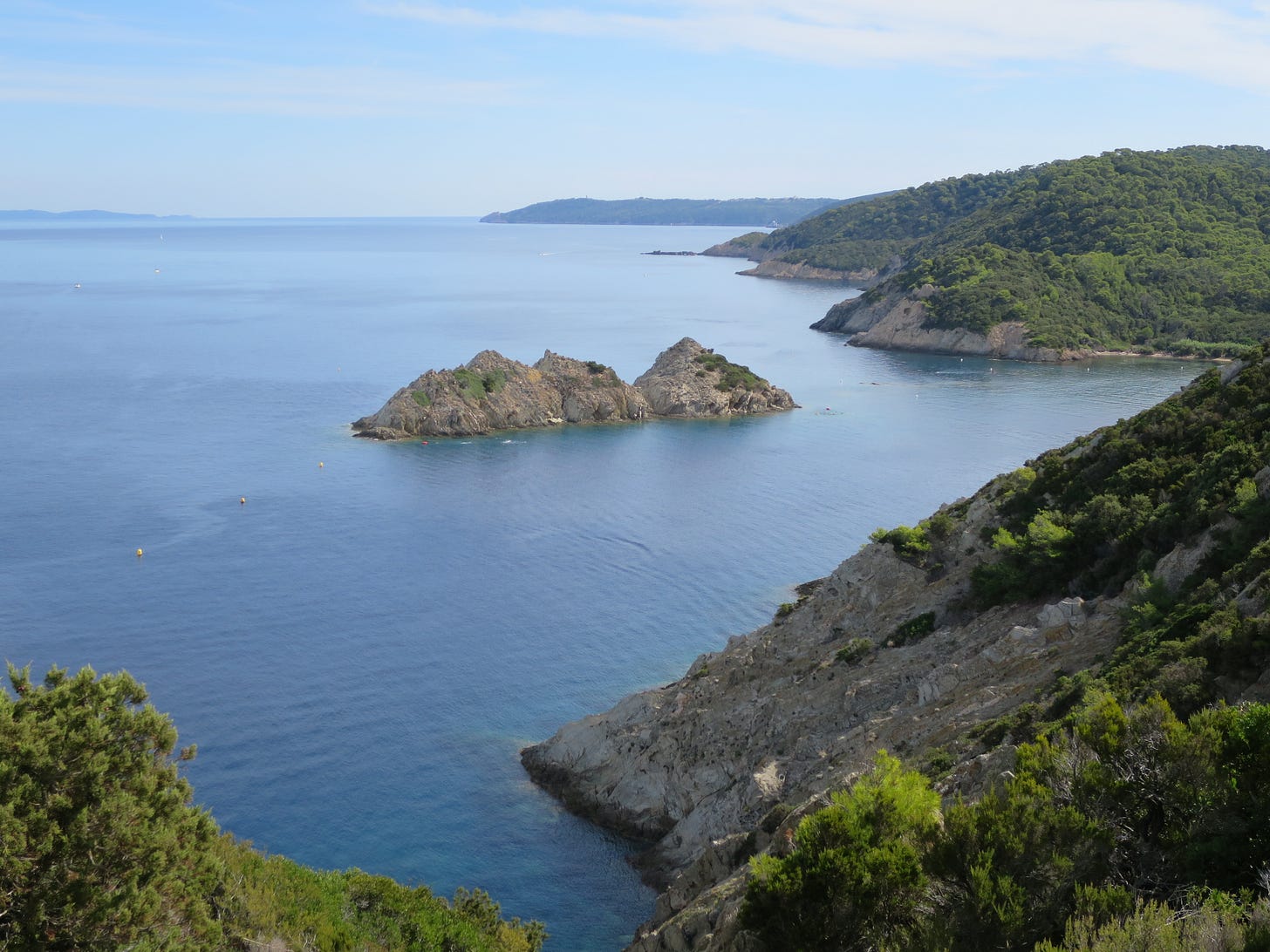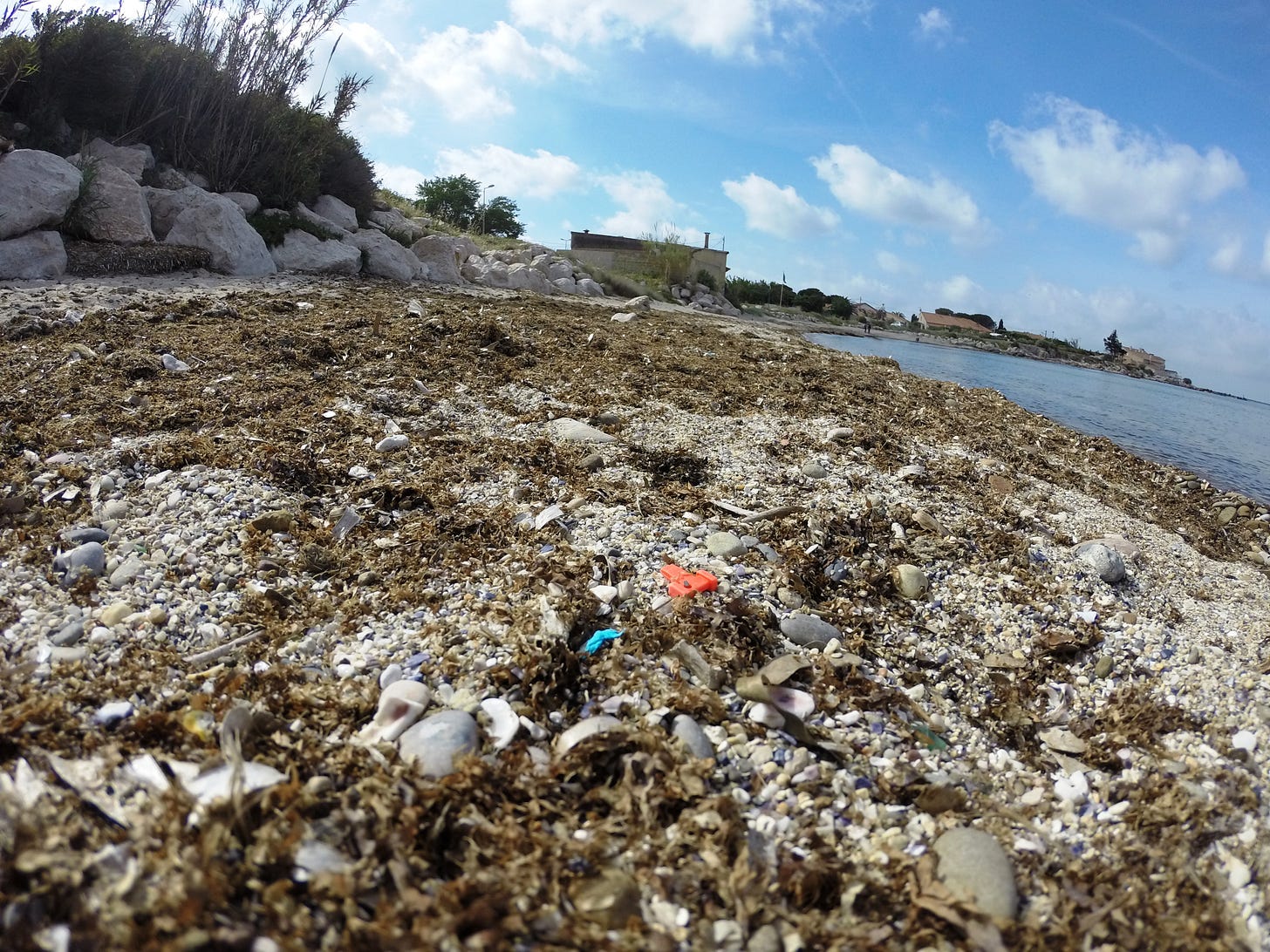When you picture the south of France what comes to mind immediately? For me it is microplastics. This area of the world is renowned for its beautiful beaches and the blue of the Mediterranean Sea. All true, but look a bit closer, as we did, and you will find lots of microplastics. This was well-known to a few others, but for us was quite a shock.
It was an arduous task – spend time along the coasts of France, Monaco, and Italy snorkeling and exploring to gather information about potential projects. During this trip in 2016, we collected information on biodiversity, read literature on the threats to the Mediterranean Sea, made contacts with local groups and churches, and spent a lot of time in the water and eating good food. It wasn't lavish, but anyone who has been to that area of the world knows how good a baguette, cheese, and a few tomatoes can taste.
The Mediterranean is one of the most threatened seas with a long history of people interacting with its water and creatures therein. Significantly, for Christians, a decent chunk of the New Testament happens in and around the Mediterranean. We don’t think of Israel as having a seaside coast and none of the four synoptic gospels feature any narrative on the coast, but Paul’s trips certainly do. It can be hard sitting on a beautiful beach looking out over the beautiful blue water to understand that overfishing is decimating the fish populations, that runoff from land bringing chemicals and nutrients into the sea is changing habitats, and that warming water is causing some of the more northern species to move closer towards extinction. Yet there is still so much beauty under the water. In 2022 the International Forum for A Rocha was held in France and it was such a privilege to go with a small group down to the sea on our day off and show them that beauty – some experiencing snorkeling for the first time ever. The exclamations of joy and surprise were priceless. These hidden threats and beauty make it harder, though, to convince people that something is wrong. If the same level of change were to happen on land it would be so much more noticeable – we still may not do anything about it, but that is another issue.
We based the fieldwork portion for the microplastics work out of Les Tourades, A Rocha's former center near a region known as the Camargue. You wouldn't think that there were flamingos in France – but there they were. This is a beautiful area of National Park with wetlands and stunning beaches. It is also very close to the Rhone River which is a major source of microplastic input into the Mediterranean. This meant spending some time in very industrial areas at the river mouth where there were loads of microplastics. We began to use nurdle hunts to quickly index microplastic pollution.
Alongside these scientific enterprises, we developed several theological resources to engage Christians with a value-based understanding of how Christian principles apply to the global plastic pollution problem. This involved taking passages from the Bible and developing a question-based format for engaging people in a thoughtful exercise of applying principles to a specific issue. Additionally, several prayers were written that address very specific problems of plastic pollution in the ocean, and which could be used before, during, or after research and conservation activities. We wanted to share this experience with others and my colleague Aline Nussbaumer developed a retreat on plastics that she was only able to run one time unfortunately, gathering several people from across Europe to spend the week at Les Tourades learning about plastic pollution, studying what the Bible says about it (surprisingly a lot), and collecting data using multiple methods that could be used by participants upon their return to their home countries. This type of immersive experience is so important for helping people to really get it and to pass on practical knowledge. We knew we had an important set of ideas and procedures that others in A Rocha could use and my experience in knowledge management made me loathe to lose all that tacit knowledge – the experience and information inside the team’s brains. We needed to make some of it explicit and did so by taking the most important ideas and building a Microplastics Toolbox, which is now in its second version as a Plastics Toolbox. Many have used the Toolbox to learn about plastic pollution and its spiritual significance
You can read the whole story and more like it in my new book Connected By Water.







